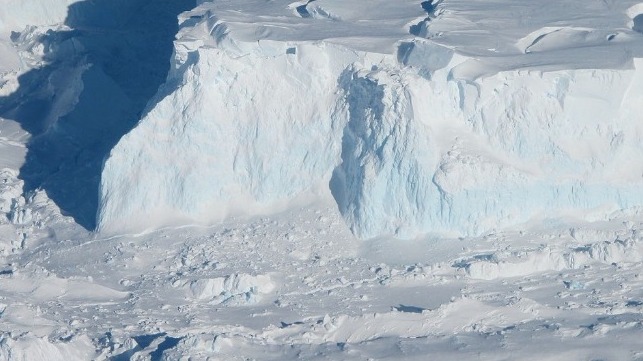A new study has found that melting Antarctic ice is slowing one of the world’s significant deep ocean currents, which could have a wide-reaching impact on marine ecosystems. Antarctica is a unique landscape and its environment has a huge impact on the rest of the planet, specifically climate and the ocean.
About 250 trillion tons of salty, oxygen-rich, and dense water sinks near the Antarctica each year. This is known as Antarctic Bottom Water (AABW). It drives deep ocean circulation and supplies oxygen and nutrients into the deep Indian, Pacific and the Atlantic Oceans.
However, a new study by the Commonwealth Scientific and Industrial Research Organization (CSIRO), an agency of the Australian government, shows that the AABW is slowing with reduced sinking of dense water in the Antarctic.
“Our observations show the deep ocean circulation around Antarctica has slowed overall by about 30 percent since the 1990s. This slowdown locks in decades of impacts,” said Dr. Kathy Gunn, the study’s lead researcher.
Reportedly, the deep ocean current slowdown is because of increased melting of Antarctica’s glaciers, making surface waters less salty and therefore more buoyant. This means there is less dense water sinking from the surface to the depths. Hence, such an interruption of a key process that replenishes the deep ocean with oxygen could have far-reaching effects beyond the immediate sea.
Professor Matthew England, Deputy Director of the Australian Center for Excellence in Antarctic Science, added that a recent climate modelling exercise he participated in estimated that under an IPCC (Intergovernmental Panel on Climate Change) high emissions scenario, the flow of AABW would slow by more than 40 percent by 2050.
“This would trap nutrients in the deep ocean, reducing the nutrients available to support marine life near the ocean surface,” said Prof. England.
While there exists limited data about the Southern or Antarctic Oceans compared to other seas, a new method of measuring the deep circulation, developed by Kathy and her team, has made this new study possible in the region. In fact, it achieved the first observation-based estimates of how the volume transport of AABW has changed.
The study focused on the Australian Antarctic Basin, because it has historically shown large changes in AABW, and is most likely to provide an emergent early warning sign.
“We are used to the idea that melting of the Antarctic Ice Sheet cause sea level rise. But this work also shows us that the impacts of melting glaciers in Antarctic extend all the way to the deep sea, affecting climate and ocean chemistry,” commented Dr. Steve Rintoul, the study’s co-author and an oceanography researcher at CSIRO.
Reference: https://www.maritime-executive.com/article/study-melting-antarctic-ice-could-slow-vital-ocean-currents

